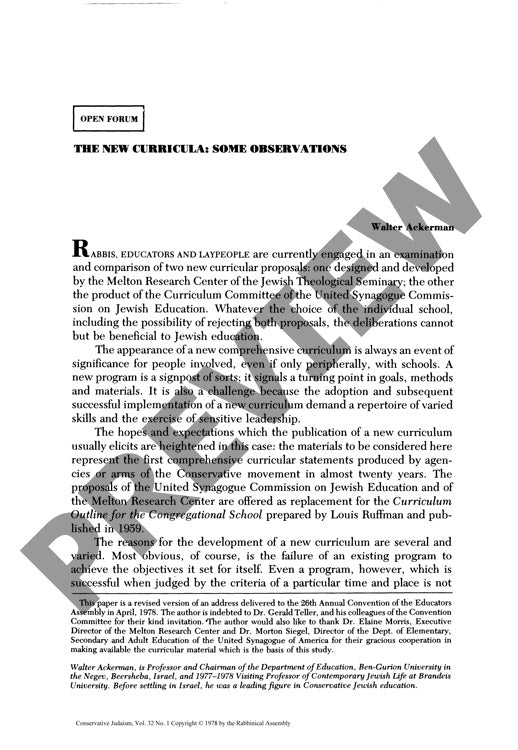The New Curricula Some Observations
Couldn't load pickup availability
Two major curricula proposed for Conservative Jewish education in the 1960s took radically different approaches to a shared challenge: how to modernize Jewish education while preserving its essential character. The Melton Research Center and United Synagogue Commission developed competing frameworks to replace the outdated 1959 Congregational School curriculum, each reflecting distinct pedagogical philosophies. Where United Synagogue emphasized student differentiation through a branching system starting in third grade and aimed to convince students that "to be a Jew is to be different, to be kadosh," Melton maintained traditional subject organization while pioneering inquiry-based learning methods. Comparative analysis of their definitions, goals, content organization, and pedagogical approaches reveals a fundamental contrast: United Synagogue sought to "convince" students while Melton designed experiences for independent meaning-making. Despite their innovations, both proposals faced implementation challenges. The United Synagogue program underwent limited pre-publication testing and relied heavily on individual teachers' discretion in selecting methods and materials, while Melton, despite extensive classroom testing, provided insufficient experimental data. Both curricula ultimately reaffirmed knowledge as central to Jewish education and responded to decades of criticism, though their adoption requires careful evaluation of their distinct methodological commitments and practical requirements.

More Information
-
Physical Description
-
Publication Information
Published 1978
ISBN
-
Publication Credits
Walter Ackerman

